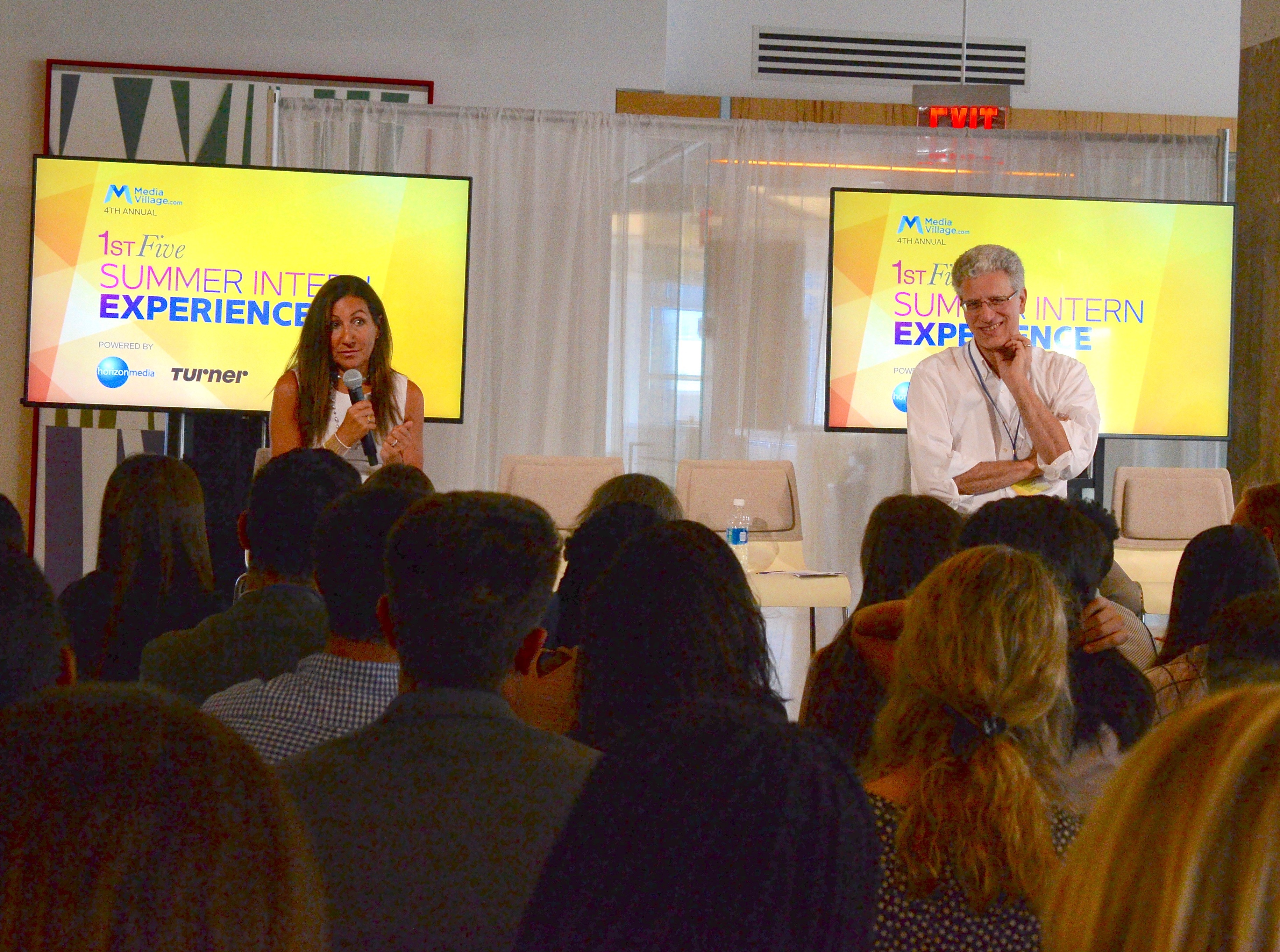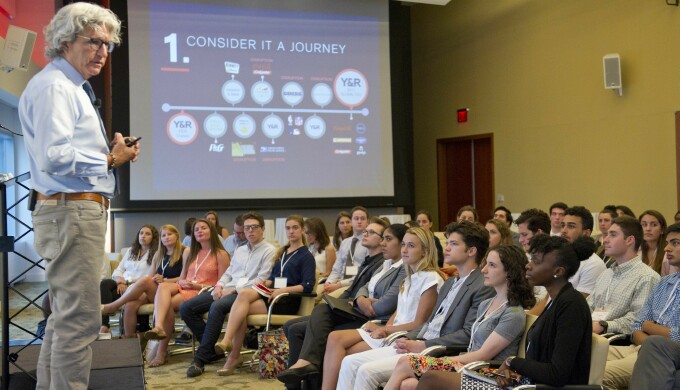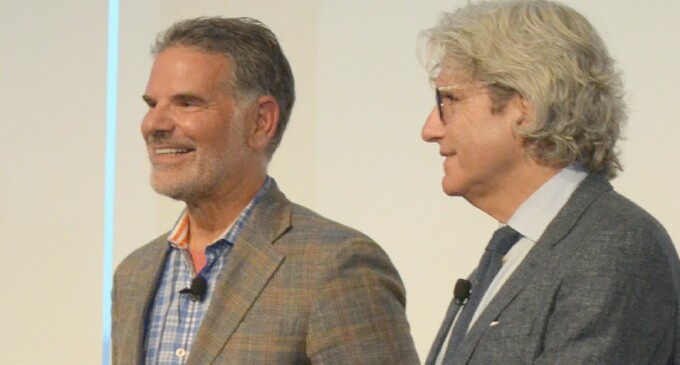In an industry as exciting and as dynamic as ours, the
question of the development of tomorrow's leaders becomes vitally
important. What can we do to encourage and train the next generation of
media executives? Helping to address that issue is Media Village.com's
bold initiative called 1st Five,
which recently held its fourth annual Summer Intern Experience at
Horizon Media. The Experience collected all of the summer interns who
worked in a range of media companies this summer to a meeting designed
to offer advice, further encourage their interest, and elicit their
feedback.
This year's event was the first to capture a majority of Generation Z
participants who grew up with the internet. "You are in my opinion, the
most singularly important generation in history because you are the
generation that is on the cusp of one of the most important significant
shifts in our culture, our society, our business, our civilization,"
noted Jack Myers, Founder of MediaVillage.com, "and we can learn a lot
from you."Executives from host companies Turner and Horizon, as well as Viacom, 4A's, and Meredith, participated on panels and spoke directly to the interns about their experiences. In one of the break-out sessions, Howard Shimmel, Chief Research Officer, Turner, spoke to a large group of interns on the value of data and a career in Research. "It's a great field and it's a growing field." He explained that as Gen-Z disrupts the media business with their new and different viewing patterns and technologies, it is Research that is trying to understand the disruption. Putting it all into context, he explained that "We are in a world where there is more data than ever. If you use Siri there is data. If you use Alexa there is data. Your phone knows where you are now. The people who win are the people who actually understand what that data is and what that data means, and what you do with that."
In turning to the interns, Shimmel found that they were excited about all the uses of data and how it could be applied to creative and advertising. Olivia, who interned at the Ad Council, found that it was "interesting to see how data and research were used to target PSAs and its evaluation on the backend with the data collected to ensure that the PSAs were hitting their specific target." Shimmel agreed and added that the increase in digitization in television is "enabling advertisers to do a better job of reaching people they care about and not reaching people they don't care about" with ability to capitalize ROI by better targeting. "The future of TV is addressable," stated Shimmel.
Not all internships are successful. One intern noted that while she was interning at a fashion firm, the company went out of business. Another felt uncomfortable in a company's culture which did not embrace his values and made him feel like an outsider. Shimmel advised students to choose their future employers as carefully as they themselves will be chosen: "You spend so much time at work that you want the company you work for to be a good match and a place where you can voice your opinion and be heard," he said.
When an intern finds the perfect company with a compatible culture and responsibilities that excite and interest them, it can become a launching pad to a long and successful career. Taylor, who interned at Nickelodeon, was excited about learning about SVOD and "how television tackles the digital competition," finding it "inspiring."
As much as the interns need a job, the media industry needs them. We need the fresh perspectives of Generation Z because TV is in a quandary according to Shimmel. Viewing patterns are changing and challenging the established business model. "How many of you watch on demand? Watch TV when you want to watch?" he asked. Most hands went up. "That is exactly the challenge we are dealing with," he concluded.
Privacy is not as big a concern to the interns as one might think, because the addressability of the ads appears to be welcome. "As for me," described on intern, "I hate to be watching a show and have ads come on that I/m not interested in and that don't relate to my life. I want to get ads that I actually use and can see what's out there."

The next step for these interns is to network, build on their contacts and hone their skills in the area of media that most excites them. Many gems of advice were offered. "Go into a job and evaluate what you like and dislike. If it doesn't work out you can figure out exactly what makes you unhappy," Shimmel noted. An intern suggested to "use your contacts. I always thought that my work speaks for itself but I realize that you need to reach out and ask for help." In a parting word of advice, Donna Speciale (pictured above with Howard), President, Turner Ad Sales, concluded, "Open yourself up to what is going on and don't have fear. Be strong in your convictions. Be confident. There are no rules so don't be afraid."
This article first appeared in www.MediaVillage.com

